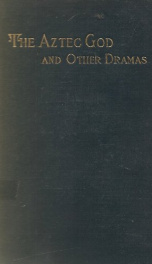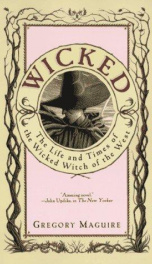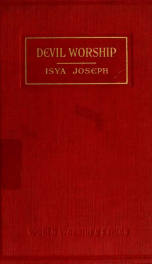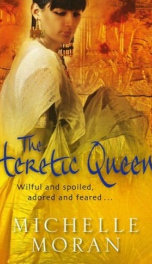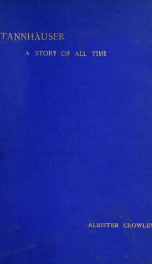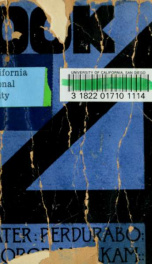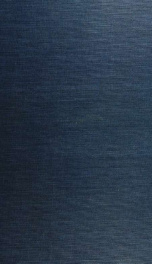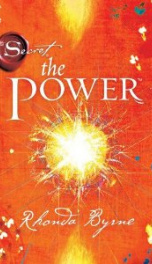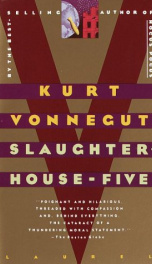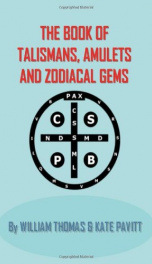Crowley Aleister

Aleister Crowley (pronounced /ˈkroʊli/) (October 12, 1875 – December 1, 1947), born Edward Alexander Crowley, was an English occultist, writer, mountaineer, poet, yogi, and possible spy.[1] He was an influential member of occult organizations, including the Golden Dawn, the A∴A∴, and Ordo Templi Orientis (O.T.O.),[2] and is known today for his magical writings, especially The Book of the Law, the central sacred text of Thelema. He gained notoriety during his lifetime, and was denounced in the popular press of the day as "The wickedest man in the world."[3][4][5][6] Crowley was also a chess player in his youth, a painter, astrologer, hedonist, bisexual, drug experimenter, and social critic. Edward Alexander Crowley was born at 30 Clarendon Square in Royal Leamington Spa, Warwickshire, England, between 11:00 p.m and midnight on October 12, 1875.[7] His father, Edward Crowley, was trained as an engineer but, according to Aleister, never worked as one.[8] He did, however, own shares in a lucrative family brewery business, which allowed him to retire before Aleister was born. Through his father's business he was an acquaintance of Aubrey Beardsley. His mother, Emily Bertha Bishop, drew roots from a Devon and Somerset family.[8] Both of his parents were Exclusive Brethren, a more conservative faction of the Plymouth Brethren.[9] Crowley grew up in a staunch Brethren household and was only allowed to play with children whose families followed the same faith. His father was a preacher, travelling around Britain and producing pamphlets. Daily Bible studies and private tutoring were mainstays in "Alick's" childhood. On February 29, 1880,[10] a sister, Grace Mary Elizabeth, was born but lived only five hours. Crowley was taken to see the body and in his own words (in the third person): The incident made a curious impression on him. He did not see why he should be disturbed so uselessly. He couldn't do any good; the child was dead; it was none of his business. This attitude continued through his life. He has never attended any funeral but that of his father, which he did not mind doing, as he felt himself to be the real centre of interest.[11] On March 5, 1887, his father died of tongue cancer. This was a turning point in Crowley's life, after which he then began to describe his childhood in the first person in his Confessions. After the death of his father to whom he was close, he drifted from his religious upbringing. His mother's efforts to keep her son in the Christian faith only served to provoke his scepticism. When a child, his rebellious behaviour displeased his mother to such an extent that she would chastise him by calling him "The Beast" (from the Book of Revelation), an epithet that Crowley would later adopt for himself. He objected to the Christian labelling of what he saw as life's most worthwhile and enjoyable activities as "sinful". In 1895, he went to Trinity College, Cambridge, after studying at the public schools Malvern College, Eastbourne College and Tonbridge School.[12] He originally had the intention of reading Moral Sciences (philosophy), but with approval from his personal tutor, he switched to English literature, which was not then a part of the curriculum offered.[13] His three years at Cambridge were happy ones, due in part to coming into the considerable fortune left by his father. Here he finally broke with the Church of England, internally if not externally: In December 1896, following an event that he describes in veiled terms, Crowley decided to pursue a path in occultism and mysticism. By the next year, he began reading books by alchemists and mystics, and books on magic.[7] Biographer Lawrence Sutin describes the pivotal New Year's event as a homo-erotic experience (Crowley's first) that brought him what he considered "an encounter with an immanent deity."[14] During the year of 1897, Aleister further came to see worldly pursuits as useless. The section on chess below describes one experience that helped him reach this conclusion. In October a brief illness triggered considerations of mortality and "the futility of all human endeavour," or at least the futility of the diplomatic career that Crowley had previously considered.[15] A year later, he published his first book of poetry (Aceldama), and left Cambridge, only to meet Julian L. Baker (Frater D.A.) who introduced him to Samuel Liddell MacGregor Mathers and the Hermetic Order of the Golden Dawn. Throughout the period of 1895, he allegedly maintained a vigorous sex life, which was largely conducted with prostitutes and girls he picked up at local pubs and cigar shops, but eventually he took part in same-sex activities in which he played a passive role.[16] During the course of his life, Crowley practised sexual magic rituals with both men and women. Sutin recounts Crowley's relationship[17] with, and lasting feelings[18] for, Herbert Charles Pollitt, whom he met while at Cambridge in 1897. Pollitt did not share his partner's mystical leanings, and Crowley had this to say about ending their relationship: He would have made any public expressions of "distaste" at a time when British law officially forbade homosexuality. The arrest, conviction and imprisonment of Oscar Wilde took place in Crowley's first year at Cambridge. In the autobiographical preface to Crowley's drama The World's Tragedy, he included two pages on "Sodomy" where he openly admitted his bisexuality and praised sex between men. However, the section was removed from all copies of the book except those given to close friends.[20] Later, in a January 1929 letter, he wrote While that claim about women conflicts with other statements and actions of Crowley's,[22] it accurately describes his relationships with Pollitt and various working class women during his college years.[23] Crowley described his decision to change his name as follows: "For many years I had loathed being called Alick, partly because of the unpleasant sound and sight of the word, partly because it was the name by which my mother called me. Edward did not seem to suit me and the diminutives Ted or Ned were even less appropriate. Alexander was too long and Sandy suggested tow hair and freckles. I had read in some book or other that the most favourable name for becoming famous was one consisting of a dactyl followed by a spondee, as at the end of a hexameter: like Jeremy Taylor. Aleister Crowley fulfilled these conditions and Aleister is the Gaelic form of Alexander. To adopt it would satisfy my romantic ideals. The atrocious spelling A-L-E-I-S-T-E-R was suggested as the correct form by Cousin Gregor, who ought to have known better. In any case, A-L-A-I-S-D-A-I-R makes a very bad dactyl. For these reasons I saddled myself with my present nom-de-guerre—I can't say that I feel sure that I facilitated the process of becoming famous. I should doubtless have done so, whatever name I had chosen."[24] Involved as a young adult in the Hermetic Order of the Golden Dawn, he first studied mysticism with and made enemies of William Butler Yeats and Arthur Edward Waite. As in many occult circles of the time, Crowley voiced the view that Waite was a pretentious bore through searing critiques of Waite's writings and editorials of other authors' writings. In his periodical The Equinox, Crowley titled one diatribe, "Wisdom While You Waite", and his note on the passing of Waite bore the title, "Dead Waite". His friend and former Golden Dawn associate, Allan Bennett, introduced him to Buddhism,[25] while Samuel Liddell MacGregor Mathers, acting leader of the Golden Dawn organization, acted as his early mentor in western magic but would later become his enemy. Several decades after Crowley's participation in the Golden Dawn, Mathers claimed copyright protection over a particular ritual and sued Crowley for infringement after Crowley's public display of the ritual. Both also developed and carried complex Seal of Solomon amulets and talismans. In 1899, Crowley acquired Boleskine House, in Foyers on the shore of Loch Ness in Scotland. In a book of fiction, titled Moonchild, Crowley later portrayed Mathers as the primary villain, including him as a character named SRMD, using the abbreviation of Mathers' magical name. Arthur Edward Waite also appeared in Moonchild as a villain named Arthwaite, while Bennett appeared as the silent, monkish Mahathera Phang. While he did not break with Mathers until 1904, Crowley lost faith in this teacher's abilities soon after the 1900 schism in the Golden Dawn (if not before).[26] Later in the year of that schism, Crowley travelled to Mexico and continued his magical studies in isolation. Crowley's writings suggest that he discovered the word Abrahadabra during this time. In October 1901, after practicing Raja Yoga for some time, he said he had reached a state he called dhyana—one of many states of unification in thoughts that are described in Magick (Liber ABA) (See Crowley on egolessness).[27] 1902 saw him writing the essay Berashith (the first word of Genesis), in which he gave meditation (or restraint of the mind to a single object) as the means of attaining his goal. The essay describes ceremonial magick as a means of training the will, and of constantly directing one's thoughts to a given object through ritual. In his 1903 essay, Science and Matter, Crowley urged an empirical approach to Buddhist teachings. In 1903 he married Rose Edith Kelly. Crowley had a revelatory experience in 1904, while on holiday in Cairo, Egypt, which led to his founding of the Magickal philosophy known as Thelema. Aleister's wife Rose started to behave in an odd way, and this started to lead Aleister to believe that an entity had made contact with her. At her instructions, he performed an invocation of the Egyptian God Horus on March 20 with (he wrote) "great success." According to Crowley, the god told him that a new Aeon for mankind had begun, and that Crowley would serve as its prophet. Rose continued to give information, telling Crowley in detailed terms to await a further revelation. On 8 April and for the following two days at exactly noon he heard a voice, dictating the words of the text, Liber AL vel Legis, or The Book of the Law, which Crowley wrote down. The voice claimed to be that of Aiwass (or Aiwaz) "the minister of Hoor-paar-kraat", or Horus, the god of air, child of Isis and Osiris and The Crowned and Conquering Child of the New Aeon, which was to be announced through his chosen scribe "the prince-priest the Beast".
do you like this author?
What readers are saying
What do you think? Write your own comment on this book!
write a commentWhat readers are saying
What do you think? Write your own comment on this author!
write a commentBook list

Household Gods
Series:
Unknown
Year:
Unknown
Raiting:
5/5
This book was converted from its physical edition to the digital format by a community of volunteers. You may find it for free on the web. Purchase of the Kindle edition includes wireless delivery. --This text refers to the Kindle Edition edition.
Show more
add to favoritesadd In favorites
What readers are saying
What do you think? Write your own comment on this author!
write a commentif you like Crowley Aleister try:
readers also enjoyed
What readers are saying
What do you think? Write your own comment on this author!
write a commentGenre
if you like Crowley Aleister try:
readers also enjoyed
Do you want to exchange books? It’s EASY!
Get registered and find other users who want to give their favourite books to good hands!
